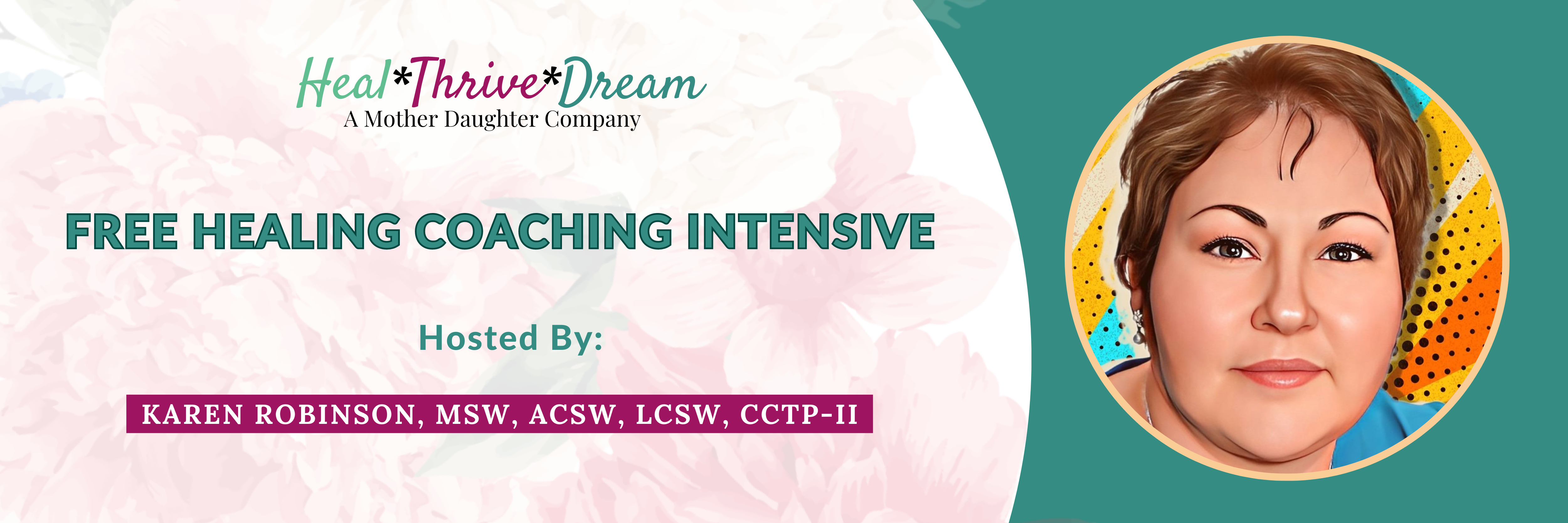You are not alone if you feel you are owed an apology. In the intricate dance of human interactions, apologies hold a unique power that transcends mere words. You have experienced situations where an apology is not only owed, but simply makes sense if there is any hope for relationship repair. Whether it's a personal offense, a broken promise, or a professional misstep, the offender should know they need to apologize. But what about trauma? The family member who emotionally abused or bullied you? The inappropriate touch or worse, sexual assault? Or what about the parent that was heavy handed with physical discipline or full out physically abusive?
My post explores what lies beneath this innate desire for apologies. It is normal for you to crave acknowledgment and reconciliation. You want those who have offended or hurt you to take responsibility for their actions and offer you a genuine apology. In this article, we delve into the psychology behind our longing for apologies and explore the multifaceted aspects that make them essential for our emotional well-being and the restoration of relationships. But what happens if you don’t receive the apology you deserve?
I’m offering a complimentary coaching intensive to address this question. https://healthrivedream.com/apology

Why you need an apology
Apologies are much more than a string of syllables and sentences. They represent a fundamental human need for acknowledgment, validation, and reconciliation. Apologizing acknowledges the existence of hurt, betrayal, trauma, and/or misunderstanding. This validates your emotions and your distrust of the person who hurt you. This recognition, in turn, provides a pathway for reconciliation and the potential restoration of trust.
You want your “truth” and your feeling validated
When someone offers you an apology, they acknowledge the impact of their actions on your feelings and behaviors. This validation is crucial because it helps you to feel understood and heard. When you receive an apology, you realize that your emotions are not being brushed aside or minimized, fostering a sense of validation that can help you move towards healing.
You want to restore trust
Trust is the foundation of any healthy relationship, be it personal or professional. The key word here is “healthy.” When trust is compromised, whether through a breach of confidence, abuse, a lie, or a betrayal, an apology can serve as a bridge towards rebuilding that trust and relationship. A wrongdoer's willingness to take responsibility for their actions, is a vital step towards earning back your trust. Without a genuine apology, trust isn’t likely to happen. This of course depends on how much harm was done to you. It makes sense that small offenses can be brushed off without an apology. However, this is unlikely with our big “T” traumas.
Closure and an opportunity to heal
Apologies play a pivotal role in the closure of emotional wounds. They offer a chance for you to process your feelings, confront the issue, and begin the healing process. An apology can serve as a cathartic moment, allowing emotions to be expressed, and laying the groundwork for moving forward without lingering resentment. Now you can see how upsetting it is when you don’t get the apology you deserve. It can lead you feeling stuck.
What makes an apology sincere?
I know that I don’t need to tell you that not all apologies are created equal. A sincere apology encompasses more than just uttering the words "I'm sorry." It involves a genuine understanding of the offense, a heartfelt expression of remorse, and a commitment to making amends. Here's a breakdown of the essential elements that make an apology genuine and effective:
1. The offender takes responsibility
Taking ownership of one's actions is paramount. A sincere apology involves acknowledging the specific actions that caused you harm and accepting responsibility for them. This step demonstrates accountability and shows that the wrongdoer understands the impact of their behavior towards you.
2. The offender shows you empathy
True empathy involves the person who hurt you to put themselves in your shoes. It can be helpful for them to understand how you are feeling and express or offer genuine regret for causing you pain. If you feel their empathy, this can create a connection. Sometimes, relationships grow closer when a relationship is repaired after hard work. Unfortunately, people who have hurt you, may not be willing to do the hard work. It is also possible that they don’t know how.
3. The offender demonstrates genuine remorse
Apologies are most effective when they are delivered with genuine remorse. This goes beyond a mere acknowledgment of wrongdoing. It's about conveying that they genuinely regret their actions and the pain they caused. Can you see how your life would be so much different if those who hurt you showed genuine remorse? It is not your fault if those who hurt you don’t show you remorse. It is theirs to claim. This has nothing to do with your worth. I understand both personally and professionally that it is hard to not take this personal.
4. The offender sincerely makes/offers amends
An essential component of a sincere apology is a commitment to making amends. This can involve taking concrete steps to rectify the situation, compensating for the harm caused, and showing that they will actively work to prevent a repeat of the offense, abuse or hurt. You as the survivor get to state what amends need to be made in order for you to heal, trust, and rebuild the relationship. It is also okay to not to want to trust or rebuilt the relationship. However, deciding to heal is a responsibility you must accept if you want to live a healthy life.
https://healthrivedream.com/apology
What makes an apology sincere?
Just as apologies are a fundamental human need, so is the act of forgiveness. Forgiveness doesn't imply condoning or forgetting the offense; rather, it's a conscious decision to let go of the negative emotions attached to the abuse or harm done. When you forgive, you free yourself from the burden of anger and resentment, allowing room for personal growth and the possibility of rebuilding relationships. Only you can decide to forgive or not. You still get to also decide whether or not you want to rebuild the relationship.
The desire for feeling that you are owed an apology is deeply rooted in your psychological makeup. Apologies provide validation for your feelings, restore trust, and facilitate closure and healing. Apologies represent a crucial step toward repairing fractured relationships and mending emotional wounds. I hope that understanding the elements of a sincere apology empowers you to deliver and receive apologies in a meaningful way. If you, I, and others in our lives learn how to apologize effectively, this can lead to stronger, healthier, and more harmonious connections in all areas of our lives.


